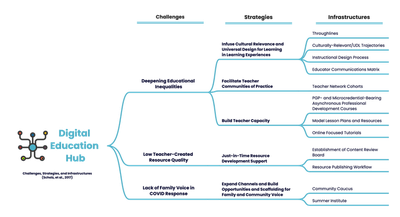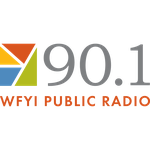
Community-Engaged Responses to Educational Challenges through COVID-19 and Beyond
The Digital Education Hub is a research project grounded in the principles of community-engaged scholarship that provides sustainable and rigorous support in collaboration with communities, families, and educators cultivating equity and inclusion in lifelong learning with technology especially for learners representing structurally marginalized identities and communities.

The Digital Education Hub is an online resource that provides educators and families with Learning, Networking, and Resources through tutorials, model lesson plans, and mini-courses to address the challenges of remote and hybrid learning due to COVID-19.
The project is built on the recognition that the role of parents and families in the learning process are even more important than in “typical” times and that educational inequalities are greatly magnified during times of crises. The critical issues that have arisen because of COVID-19 are not new, so the Digital Education Hub seeks long-term changes in dispositions, instructional decisions, curriculum and materials design, and policy.
Six throughlines shape the framework for the Digital Education Hub, connecting all parts of the project:
Empowering Communities and Families: Families and community members are key stakeholders in determining the ways materials and resources are accessible, equitable, and inclusive for all students.
Coalition Building: The educational environment is co-constructed through a historical reciprocal process of interdependence to ensure all voices are included in building equitable and inclusive learning networks and partnerships.
Deep and Transformational Learning: The promotion of academic success through a rigorous and integrated process that honors learners and communities as cultural entities and works to change the world to be a more equitable and inclusive place.
Intentional Use of Technology: Technology is used in a purposeful manner that is informed by context and is oriented towards building equitable and inclusive learning environments.
Equitable Practices and Systems: Leading learning and knowledge sharing mediated through equitable and inclusive dispositions that promotes the success of disenfranchised learners and communities.
Multiple Ways of Knowing and Doing: The knowledge and wisdom of the students, families, and communities are centered in content and pedagogical decisions to promote equitable and inclusive learning experiences.


